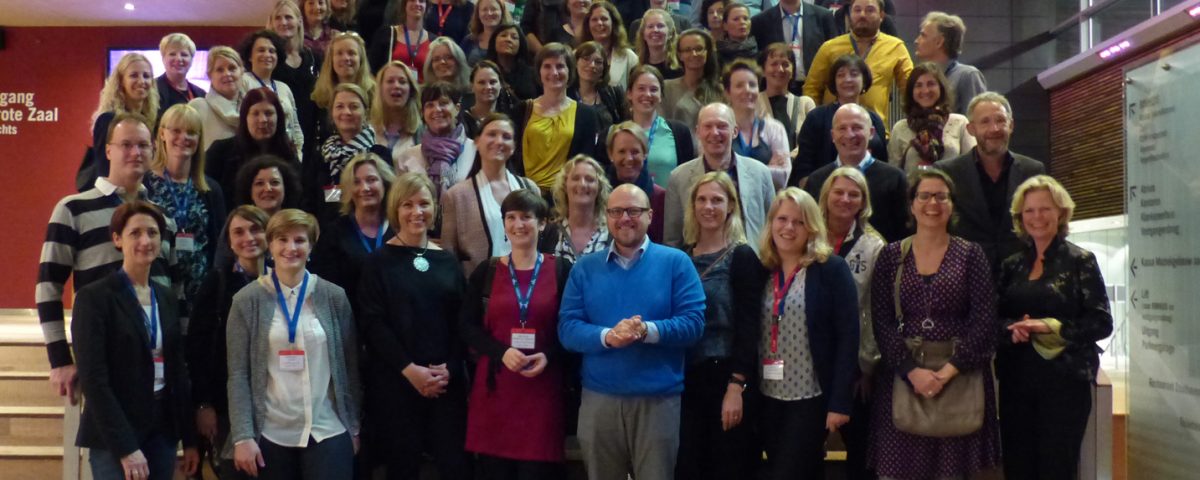European cities’ TIC staffs say it with their bodies!

71 product managers representing 39 leading European Cities recently met in Amsterdam for the second edition of the TIC Expert Meeting to exchange knowledge and best practices on Tourist Information Centres.
The TIC Expert Meeting is a lunch-to-lunch meeting targeted to TIC managers and staff who are looking to improve and share their knowledge. It’s an initiative of European Cities Marketing, the only membership association strengthening city marketing in Europe with 100 cities onboard. For the second year in a row, the event was fully-booked showing once again the interest of TIC managers and staff in exchanging to improve their TICs.
Joachim Voelkle, Certified Body Language Trainer & Recruiter at Jobs2Spread delivered a presentation on Non-verbal communication and how people can communicate through sending and receiving wordless cues.
Two-thirds of all communication is set to be non-verbal, making it essential to consider. It is an important part of how people communicate and there are differences depending on the cultural environment – all TIC staffs have to communicate with people from different cultures every day – the focus of this presentation was on universal body language, sharing experience in this context and getting a glimpse into professionally using it.
In conventional Western culture, eye contact is read as attentiveness and sincerity. Individuals are taught that they should “look people in the eye” when talking. Nevertheless, in lots of cultures, eye contact is considered rude or disrespectful. In the Middle East, the left hand is used for corporal hygiene and should not be used to touch someone or transfer objects. In Muslim cultures, touch between opposite gendered persons is generally inappropriate. Pointing with one finger is considered to be rude in some cultures and Asians typically use their entire hand to point to something.
Richard Windischbacher, TIC Knowledge Group chairperson and TIC Manager at Graz Tourismus explained: “Tourist Information Centres are a source of inspiration for visitors in a city. The aim of our yearly event is to offer a mix of incentive and exchange opportunities for all the TIC experts’ attendees from large and small cities, from public and private organisations. The exchange of best practices, experience and know-how is the key to improve cities competitiveness. The TIC Expert Meeting allows attendees to benchmark themselves by learning about other TIC, like this year with the presentation of Dublin’s freshly opened self-service TIC that is innovative in its way of informing people.”
The TIC Expert Meeting will be back in Autumn 2016. Details will follow on European Cities Marketing website: www.europeancitiesmarketing.com
European Cities Marketing is a non-profit organisation improving the competitiveness and performance of leading cities of Europe. ECM provides a platform for convention, leisure and city marketing professionals to exchange knowledge, best practice and widen their network to build new business. European Cities Marketing is promoting and linking the interests of members from more than 100 major cities in 36 countries.
ECM Knowledge Groups are expert teams focusing on specific aspects of city marketing and urban tourism development. They discuss issues, share best practices, prepare reports, conduct surveys and, in certain cases, undertake joint marketing activities.
TIC Knowledge Group aims at strengthening city tourism by sharing knowledge on TIC, boosting the efficiency in TIC daily work and delivering better services to the traveller. The Group also brings together experts working in the field to exchange on best practices within the TIC Expert Meeting held once a year.
Contact information
Flavie Baudot
Tel: +33 380 56 02 00